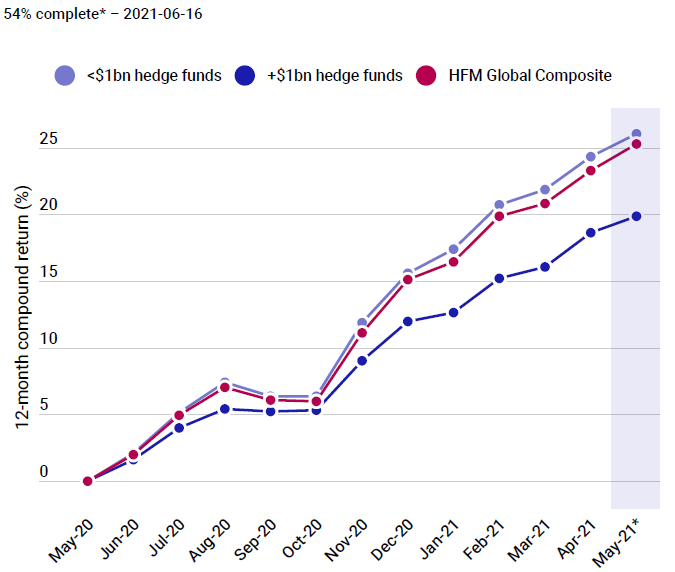Following is the unofficial records of a CNBC interview with Bridgewater Associates Creator Ray Dalio on CNBCs “Closing Bell” (M-F, 3PM-5PM ET) today, Thursday, January 6th. Following is a link to video on CNBC.com:
Part I.
SARA EISEN: The cash printing and debt binge that the worlds governments and reserve banks have started to prop up their economies is among the 3 main styles that Ray Dalio handles in his study of the last 500 years in his new book, “Principles for Dealing with the Changing World Order.” I took a seat with him earlier today to discuss it and asked how worried investors must be today about the Fed getting rid of all that stimulus as weve seen play out in the market in recent days.
RAY DALIO: Heres how the machine works. Weve developed a lot of money and financial obligation, a lot of purchasing power, everyone got all that, but you dont develop more wealth when you develop more money. And were at the part of the cycle where all those checks went out and all that cash came in and, and yet before, were simply at the start of the phase, that all that money is being invested and structure, increasing the inflation and with it, throughout history, it triggers goods, services and monetary asset prices to rise.
EISEN: So not necessarily a recession, however could see some, some increased volatility. Youve stated you dont want to remain in money right now and you dont want to remain in bonds. However if the Fed does embark on this tightening and slows the economy and the marketplaces that seems like it would be a pretty unstable time for equities.
DALIO: The essential thing to recognize, I believe, is that the Federal Reserve and all main banks will have to keep an unfavorable rates of interest, a negative real interest rate. Now, bond yields and have, you understand, an unfavorable real interest rate of, you know, almost 1.5%, 2% depending on where and the cash rate is minus 4% so that all investors will be in a position where the worth of their money in money or in bonds will not keep up with inflation. I believe investors need to think about, consider returns differently. I believe they look at the quantity of the returns in nominal dollars, how many dollars do I have. And they do not look at the quantity that they have in relation to genuine dollars. In other words, adjusted for inflation. And while there can be somewhat of a tightening, it cant suffice of a tightening to raise those returns on money and bonds to be good enough to make up for inflation. Because if it is, if you had, that would need a huge rise in interest rates that would initially set the economy down. When we look at the circumstances today, simply imagine with the political polarity that we have as were coming into the 2022 elections, and then the 2024 elections, if the Federal Reserve tightened the monetary policy enough to trigger a slump. If were at each others throats when these are the, everyones gotten so much cash and this is about as great as youre going to get, just think of the repercussions that would have. The Federal Reserve, I do not think even though theyre behind the curve by a lot, I dont think theyre going to be able to capture up and make cash and bonds an attractive investment.
EISEN: It seems like you dont see many walkings this year. Do you think they can get 3 done as expected?
DALIO: I believe that the, I believe that the, the anticipated three rate walking is a sensible thing, however theyre going to be screening and due to the fact that of the period of possessions is long in other words, when interest rates come down, sensitivity to markets is greater. Even modest changes are going to have a result and so youre going to see a financial tightening up taking place likewise where the rate of financial spending and what will come down.
EISEN: No doubt and youve stated for investors to be diversified in this circumstance within the equity market, what do you do with tech stocks, which appear in the direct crossfire here when it concerns Fed tightening up?
DALIO: Well, once again, tech stocks have a really long period meaning theyre sensitive to interest rate modifications due to the fact that the incomes and the benefit of tech stocks is really much in the future. And so, theyre more sensitive than, you know, the meat and potato man of basic business type stock.
EISEN: As weve seen. You just put out a caution, simply moving on to your 2nd huge theme around the wealth gap and the political gap about some essential elections coming up consisting of in this nation 2024 where you state its plausible that we may not have a clear outcome or challenged result. How would that manifest do you think in the markets? What should financiers be finishing with that kind of situation?
DALIO: Well, I believe that financiers look at their entire position, you know, theyre, theyre people, they believe about many things, you know, where they live and so on. I believe were coming into an environment, we are in an environment in which there might be irreconcilable differences and that individuals are just adjusting, people are moving, not simply for taxes, but theyre moving to places that they feel might be more congenial. I think that financiers and in the more comprehensive sense, peoples, you understand, seeking their wellbeing, have to be aware of those things.
Part II.
EISEN: Conflict in between the worlds two greatest economies is just warming up and the tension over Taiwan definitely a risk element for investors this year. Its one of the other huge problems Ray Dalio takes on in his new book, “Principles for Dealing with the Changing World Order,” which is a research study of the last 500 years, including the ascendancy of China as a worldwide superpower. As far as United States China tensions go I did ask Dalio when I spoke with him earlier, whether he thinks financiers are comprehending the dangers and implications of this brewing fight.
DALIO: There are 5 types of wars generally. They have financial investment ramifications, they have geopolitical ramifications, and I do not believe that theyre well understood. I believe they require to be better understood and thats why I composed the book.
EISEN: What do you think financiers should do about that? There are a lot of United States multinational business that do a lot of organization in China. Are they at danger or, or are you speaking about something bigger and more comprehensive around the marketplaces?
Theres an inter connectedness there that, you understand, on, I think unavoidable, and the separation of those things would be catastrophic. I think that would simply be awful for everybody. But I do not believe that these will be enabled to get out of control due to the fact that the repercussions would be so bad so I think itll be more like a competitors.
EISEN: The other aspect of competitors here between the United States and China which, which actually spoke to me in your book and you look at the world a lot through this lens is the, the competitors for reserve currency status and the fluctuate of reserve currencies, which youve taken a look at the Dutch, the British, and now America and how we enter into this new world order. Do you see ultimately the competition between the US dollar and the Chinese renminbi and do you see China taking over that reserve currency status at some time?
DALIO: Changes in reserve currency status are evolutionary. Its practically like speaking a language. You know, if everybody if the world language is English, many everyone will discover English and then it progresses over a time period, but it likewise has supply demand concerns. I believe its an evolutionary kind of modification. I think the United States is evaluating the limitations due to the fact that when theres a production of a lot of debt that is cash, its guaranteed to receive cash that is then needs to be sold and the world right now is overweighted, has a lot of US dollar denominated financial obligation, for that reason assures to receive dollars. And as and its going to receive a lot more because therell be big deficits, great deals of bonds that need to be offered. And as a result of that, the world is also underweighted in China and properties. Its diversifying more, not China today is the largest trading nation worldwide, and also large, bigger than the United States in terms of the important capital circulations for financing and, and such. And so, there is a development in favor of China having a bigger share of the reserve currency status. I believe that is our biggest strength right now, the reserve currency status, due to the fact that its that which permits us to print money and print the worlds currency. Wow, thats a fantastic power and, and to have it accepted. It is being considered approved and its being challenged. Ought To the United States lose that due to the fact that of the supply need issue that Im describing. That would be very bad. I believe what youre seeing today, is that all currencies are going down in worth relative to products and services because I think were in a scenario where all nations are producing more debt and money and not a lot relative to each other whichs having the impacts on the markets and the economies that were seeing.
EISEN: So how do you diversify away if all the major currencies are devaluing themselves, even if we get little blips like a 6% rise in the dollar last year? How ultimately do you see it playing out?
DALIO: I think currency is a cash and a store hold of wealth. I think one has to realize that its an ineffective shop hold of wealth. In other words, when you hold a, an interest rate, an asset, that diminishes in relationship to the acquiring power and so what that indicates is that the most cash, its not going to be an efficient shop hold of wealth, and thats why one need to look at other store holds. That means a well-diversified portfolio of assets that do not depreciate, diminish in the sort of paradigm that were now in. This is a paradigm in which there will be more devaluation of the value of money. Not, not every day, not on a monthly basis, not every six months, but over the period that over a prolonged time period. We need to look at other sources of shop hold of wealth.
EISEN: Like what? Is Bitcoin in that classification since it appears to me that regulators can simply regulate it out of existence?
DALIO: I think were going into an era where the concern will be, what are the cash, what are the shop holds of wealth? I think that youll begin to see the renminbi Chinas currency end up being more internationalized and the variety of options will be increasing, you know, and were entering a new age of what is the cash that is the store hold of wealth. I believe itll be fascinating times in the years ahead particularly as we get into, you understand, 2023 and 2024 with the political scenarios and all thats going on, even globally with the competitors from China and other locations.
EISEN: No question. So simply to cover it all up, I imply, the primary style from you and your studies and this and these takeaways are investors ought to be diversified, but not in bonds and not in cash. So it sounds like gold is definitely on your list. Stocks, however not always tech stocks, just, just provide us a sense of what you do think is safe in this increasingly scary environment.
DALIO: Well to believe about, for example, also consisting of inflation index bonds as a possibility in the portfolio to be thinking about other nations, and when thinking about other nations to believe about them differently, like I have just a couple of basic requirements and looking at practically every country as well as business, are they making more than theyre spending? And do they have a danger or not of external order? And so when I look at various places, thats kind of a checklist that I keep in mind in terms of finding out in this kind of an environment, what will be the more secure properties.
Upgraded on Jan 7, 2022, 10:27 am.
I think financiers require to believe about, believe about returns differently. DALIO: I think that the, I think that the, the anticipated 3 rate hike is an affordable thing, however theyre going to be testing and since of the duration of possessions is long in other words, when interest rates come down, sensitivity to markets is higher. DALIO: Well, I think that financiers look at their whole position, you know, theyre, theyre people, they think about lots of things, you know, where they live and so on. I believe what youre seeing right now, is that all currencies are going down in value relative to goods and services due to the fact that I believe were in a circumstance where all countries are producing more debt and money and not so much relative to each other and thats having the impacts on the markets and the economies that were seeing.
DALIO: Well to think about, for example, also consisting of inflation index bonds as a possibility in the portfolio to be believing about other nations, and when believing about other nations to believe about them in a different way, like I have just a couple of standard criteria and looking at practically every nation as well as business, are they making more than theyre investing?
Q4 2021 Hedge Fund Letters Database Now Live [Last Updated 01/07] Q4 2021 hedge fund letters database is now up. See what stocks top hedge funds are offering, what they are buying, what positions they are employing for, what their financial investment procedure is, their returns and far more! This page is upgraded often, VERY FREQUENTLY, day-to-day or in some cases several times a day. As we get new Read MoreThe Problem With Tightening Policy Is Interest Rate Sensitivity, Says Ray Dalio




